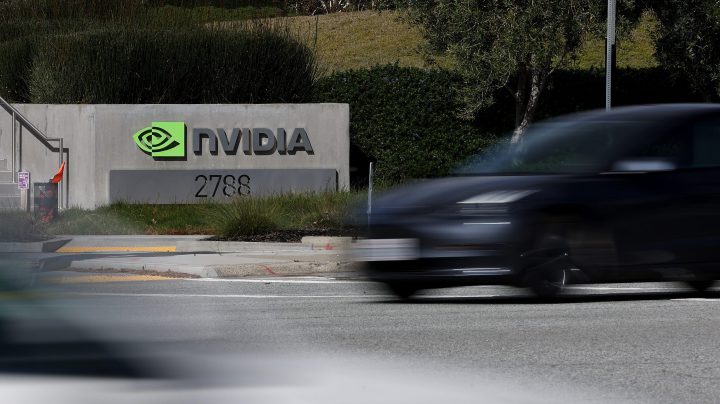
When one company dominates a market, there can be downsides
When one company dominates a market, there can be downsides

The stock market is giving a whole lot of love to chipmaker Nvidia after it revealed blockbuster quarterly earnings Wednesday. The company has become the breakout sensation of the AI boom.
Its advanced graphics processing units, or GPUs, are the key piece of hardware needed to train complex artificial intelligence models, like the one powering ChatGPT. Nvidia absolutely dominates there — controlling about 80% of the market for these specialized semiconductors.
That kind of concentration is great for Nvidia and its investors, but it can have downsides.
It’s not just that the entire AI industry is so reliant on one chip company. It’s that that company is so reliant on one manufacturer that actually produces the chips: Taiwan Semiconductor Manufacturing Co., or TSMC.
“There’s a problem in a lot of sectors where there is a dominant provider,” said Darrell West, a senior fellow at the Brookings Institution.
We’ve been here before, he noted. “The last few years have taught us how delicate our supply chain is. I mean, we’ve seen disruptions in a lot of different areas.”
There were the toilet paper wars, nurses wearing trash bags in lieu of COVID protective gear and the semiconductor shortage that made car shopping a competitive sport.
Manufacturing processes have become both more specialized and geographically dispersed, explained Ram Ganeshan, a business professor at the College of William & Mary.
“It’s sort of a division of labor, so to speak,” he said.
This can make production more efficient and easy to scale. And the increasingly global market — mediated by the internet — has created a winner-take-all dynamic in the business world, per Aswath Damodaran, a professor of finance at New York University.
“I think it’s a fact that there are fewer players in almost every business, so you worry more about any one of them getting into trouble,” he said.
You worry even more, Damodaran continued, when the location involved is Taiwan — where there are simmering geopolitical tensions with China.
The U.S. is making investments like the CHIPS and Science Act to shore up domestic tech supply chains, but they could take years or even decades to build out.
There’s a lot happening in the world. Through it all, Marketplace is here for you.
You rely on Marketplace to break down the world’s events and tell you how it affects you in a fact-based, approachable way. We rely on your financial support to keep making that possible.
Your donation today powers the independent journalism that you rely on. For just $5/month, you can help sustain Marketplace so we can keep reporting on the things that matter to you.

















